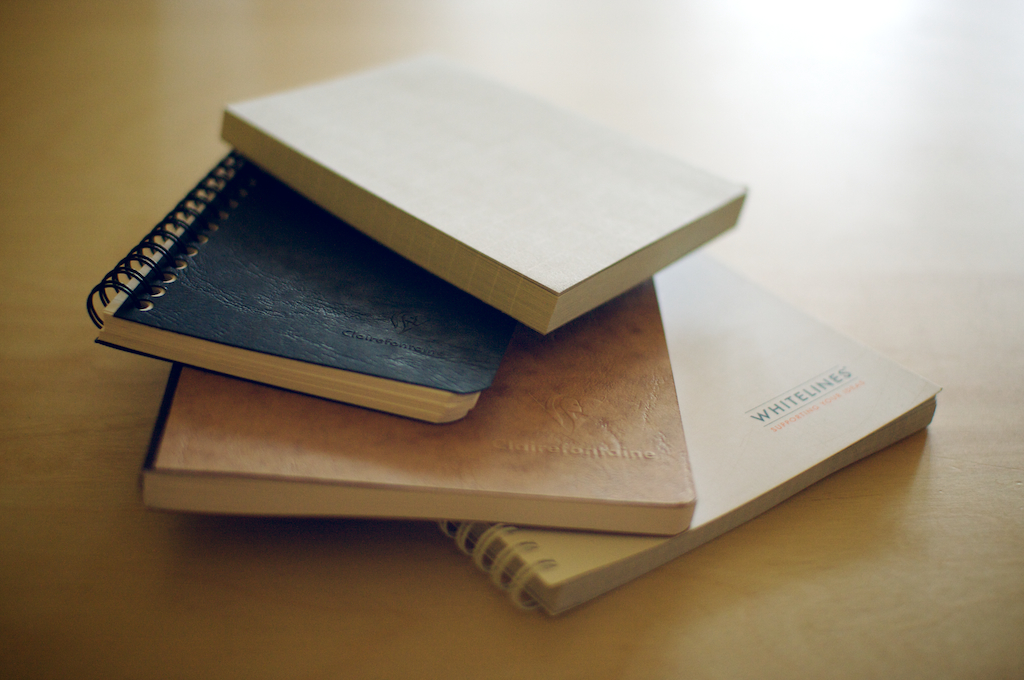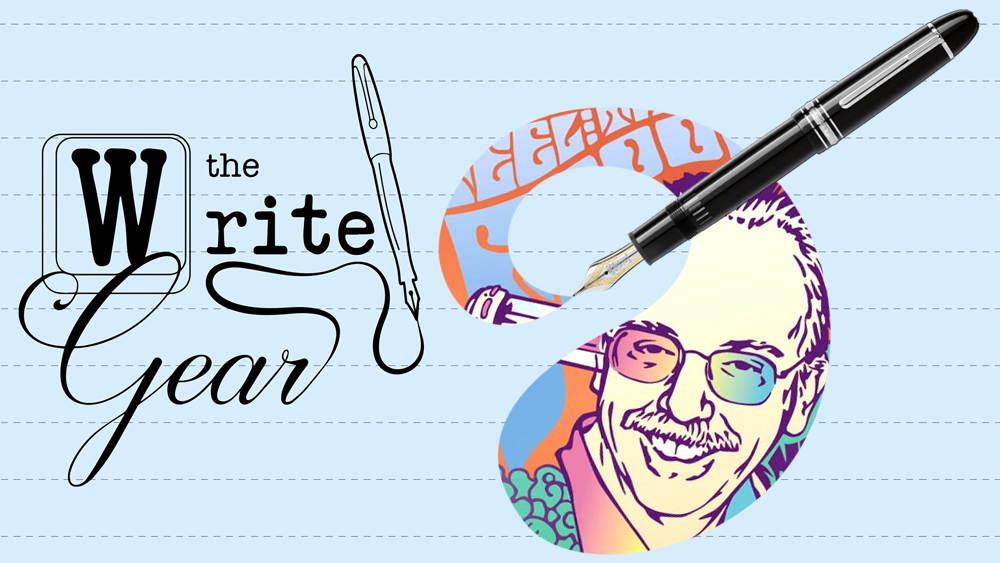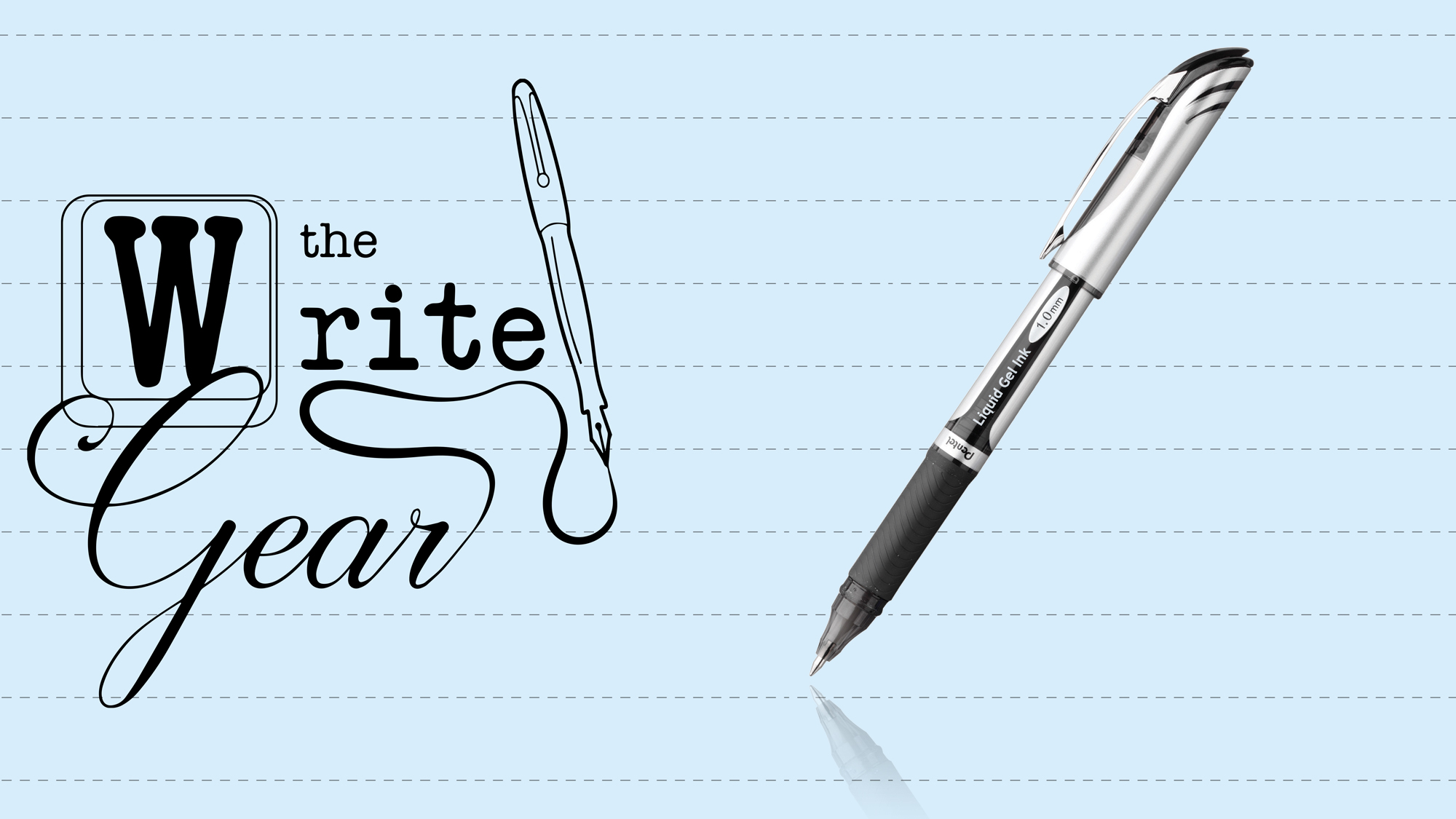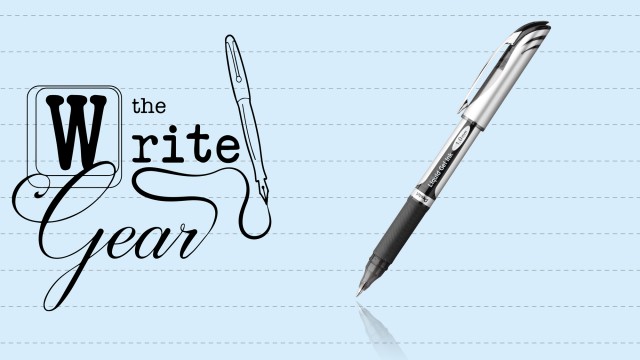
Still thinking about the concepts I brought up in the Gesture Writing post from last week. One piece of the process I didn’t expand on and now realize I should have is the part where Howard talks about sitting down with a notebook:
I wrote all over the page, a line of complete dialogue followed by a place-holder phrase of exposition, a one-word reminder of the next action followed by an arrow to the margin where I’d scribbled a description of a key image. The page looked a mess. But I had captured the movement of the scene…
A key part of this is that she sat down with pen and paper to capture the scene, not her computer. And maybe that’s because she needed to get away from her laptop in order to think differently. Just the fact that she had a ready notebook says something else.
At ReaderCon last year I did a fabulous interview with Andrea Hairston where she talked about how writing with a pen on paper activates the creative parts of the brain in a way typing on keys does not. It’s about the movement of the hand, the connection to the body. It’s no surprise that a drawing class inspired Howard if she’s the type to take up a notebook when attempting to work out a tangled scene.
I keep a paper notebook and I carry around way too many pens because I’m fussy about them. I don’t need them for writing actual fiction longhand; I do need them for thinking about what I’m going to write. I’m convinced that the scene outlining thing only works well for me if I do that outlining in my notebook and not on a computer. Writing it out longhand opens up my head and makes the creative juices flow. I didn’t know this is why scene outlining led to much easier writing days, but after talking to Andrea it all clicked.
I prefer a lined journal. Never did get the habit of keeping my lines straight without a guide. Sounds like Howard’s notebook is a blank one as her method would only be restricted by lines. I know some writers like this–Alaya Dawn Johnson has shown me her writing notebooks in the past and I don’t know if I could handle all that beautifully controlled chaos. It works for her, though! My working things out tends to be more straightforward stream of consciousness writing. I might skip all over the place in my head, on paper the skipping happens one word after the other.
I’m not opposed to trying a more free-form, lineless journaling style. Not many journals give you multiple choices. It’s either lines, grids, or blank. Technology could be the answer here. I’ve written before about tablet and pen solutions and I own a Galaxy Note 8 that I use for work notes. If someone took away my paper and pen forcefully and made me use the Note for everything, I wouldn’t be completely depressed. Don’t know if I would be completely satisfied, either.
Footnotes




